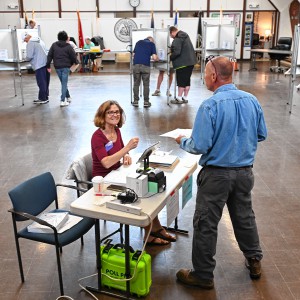Blue Cross pauses anesthesia policy after doctors raise concerns

DREAMSTIME/TNS DREAMSTIME/TNS
|
Published: 01-29-2024 7:00 AM
Modified: 01-29-2024 12:57 PM |
Less than a month after it began enforcing a longstanding policy restricting the use of anesthesia during colonoscopies and other procedures, Blue Cross Blue Shield of Massachusetts is pausing that action after physicians statewide lobbied the insurer to reconsider.
Dr. Sandhya Rao, the company’s chief medical officer, acknowledged in a statement that “there is confusion about the policy and the reasons for it. The confusion stems from inaccurate information about our coverage for the different types of sedation available to members for these procedures.”
Rao said the enforcement action, which began Jan. 1, was put in place to ensure that patients receive the type of sedation most clinically appropriate for them and consistent with national medical guidelines. The policy change restricted the use of deep sedation administered by an anesthesiologist for patients that don’t meet certain criteria in favor of moderate anesthesia administered by the gastroenterologists performing the procedure.
Physicians argued that the change was affecting patient care and comfort.
“It’s going to be detrimental for patients primarily for their safety and for the quality of our exams,” Dr. Elyse Linson, gastroenterologist at Hampshire Gastroenterology Associates (HGA) in Florence, said before Blue Cross announced it would pause the enforcement action.
Linson said that up until now, all colonoscopies at HGA have been performed with an anesthesiologist in the room giving the patient sedation and motoring their vitals, breathing, blood pressure and comfort level.
“Now we’re focused on giving the patient medications and their comfort level and watching vital signs, so our attention will have to be divided,” Linson said.
In announcing the enforcement pause, Rao said, “Given the confusion, we’ve decided to pause enforcement of this policy while we work to make sure our members understand all their options for colon cancer screening and sedation and that they feel confident they’re getting the care that’s best for them.”
Article continues after...
Yesterday's Most Read Articles
 Serious barn fire averted due to quick response in Shelburne
Serious barn fire averted due to quick response in Shelburne
 Bridge of Flowers in Shelburne Falls to open on plant sale day, May 11
Bridge of Flowers in Shelburne Falls to open on plant sale day, May 11
 Political newcomer defeats Shores Ness for Deerfield Selectboard seat
Political newcomer defeats Shores Ness for Deerfield Selectboard seat
 Roundup: Pioneer baseball wins Suburban League West title following 2-0 win over Hopkins
Roundup: Pioneer baseball wins Suburban League West title following 2-0 win over Hopkins
 As I See It: Between Israel and Palestine: Which side should we be on, and why?
As I See It: Between Israel and Palestine: Which side should we be on, and why?
 Employee pay, real estate top Erving Town Meeting warrant
Employee pay, real estate top Erving Town Meeting warrant
In an email statement before making that announcement, Rao said that moderate sedation is an established, safe, effective alternative to propofol [deep sedation] that is always covered when deep sedation is not required.
“Deep sedation remains available for qualifying patients and is one of many sedation options that doctors select to perform these procedures safely and effectively,” Rao said.
Blue Cross Media Relations Director Amy McHugh said, “The reason we are enforcing this policy is that we’re seeing a wide variation in how providers use sedation in colonoscopies specifically.”
In addition to colonoscopies, the policy also applies to other endoscopic, gastroenterologic and pain procedures.
A range of local, statewide and national organizations have spoken out in opposition.
“The Massachusetts Association of Nurse Anesthetists Board of Directors stands united in firm opposition to any policy that compromises patient safety and impedes access to essential healthcare services,” said Glenn Colassi, president of the association. “We call for collaborative, patient-centric approaches that prioritize the well-being of individuals seeking medical care and uphold the highest standards of anesthesia practice.”
Excluding skin cancers, colorectal cancer is the third most common cancer diagnosis in the United States, with over 150,000 cases estimated for 2024, according to the American Cancer Society.
While diagnosis rates have dropped overall since the mid-1980s, rates for people younger than 55 have been increasing by between 1% and 2% each year since the 1990s. Similarly, the death rate has been dropping in older adults for decades, but for people under 55 death rates have increased by around 1% each year since the mid-2000s.
“Especially in this period of time where you’re seeing more and more news stories about the increase in colon cancer, especially in the younger population, I think the timing to try to implement this policy when we really need as many people as possible to get colon cancer screening, it’s just really unfortunate,” said Dr. Lauren Bleich, practicing physician and president of the Massachusetts Gastroenterology Association.
Hampshire Gastroenterology Associates recommends generally that every healthy patient undergo screening colonoscopies beginning at age 45, unless their family history suggests they should start sooner.
As the largest health insurer in Massachusetts, Blue Cross covers a lot of young, healthy patients, whereas Medicare and Medicaid — which do cover the cost of anesthesia — covers older, less healthy patients, said Linson.
“It is capturing a lot of these young and healthy patients that would need screening colonoscopy,” Linson said.
Blue Cross’s Rao said that the insurance policy would still cover deep sedation for “any Blue Cross member who needs it.”
“Examples include, but are not limited to, patients with conditions that require more frequent colonoscopies (annually), patients who have a failed procedure, patients who have a fear of medical procedures, and patients who have a chronic condition,” Rao said.
“Over the past year, we’ve met with providers and representatives from professional societies to hear their concerns,” Rao said. “We used their feedback to expand the list of conditions for which deep sedation is deemed clinically necessary.”
Bleich — who represents one of those professional societies Rao refers to — said that while the medical community appreciates the expanded list of “codes” that qualify an individual for deep sedation, “the bigger problem is that an insurance company is trying to dictate how a physician should take care of a patient based on financial responsibility rather than what’s best for the patient as determined by the physician and the patient.”
Bleich said the list of codes stretches 200 pages, and that physicians are commonly able to find a code that a patient fits into, but that even after a procedure is performed, it can take over a month for insurance to deny a bill.
“You don’t want to have to worry about what’s going to happen on the back end of [a procedure],” said Linson. “After you have your procedure, your insurance company can say, ‘Oh actually we’re not going to cover it because of XYZ.’”
Many patients are opting not to undergo the procedure, out of concern that they will be awake during the procedure or that insurance won’t cover the anesthesia.
“Some people are canceling their procedures because they don’t know what to expect,” Bleich said. “Patients are very upset by this sudden change.”
In terms of patient experience, Rao said that moderate sedation causes sleepiness and relaxation, and that patients typically don’t remember the procedure afterward.
But Bleich said that some patients do hear doctors or nurses speaking to them, and may feel discomfort.
Moreover, the recovery time for conscious sedation is more involved, takes longer to wear off, and has more reported side effects like nausea or vomiting.
Not only is that uncomfortable for patients, said Bleich, but it can further congest waiting lists.
“Some of our centers and medical communities have a year-long surveillance colonoscopy list right now,” she said. “We don’t want to make it longer.”
“We are going backwards in the level of care and the satisfaction that patients are already accustomed to,” Bleich said.

 New Salem election ushers in new Selectboard member
New Salem election ushers in new Selectboard member Community Legal Aid expands Disability Benefits Project to Franklin County
Community Legal Aid expands Disability Benefits Project to Franklin County
